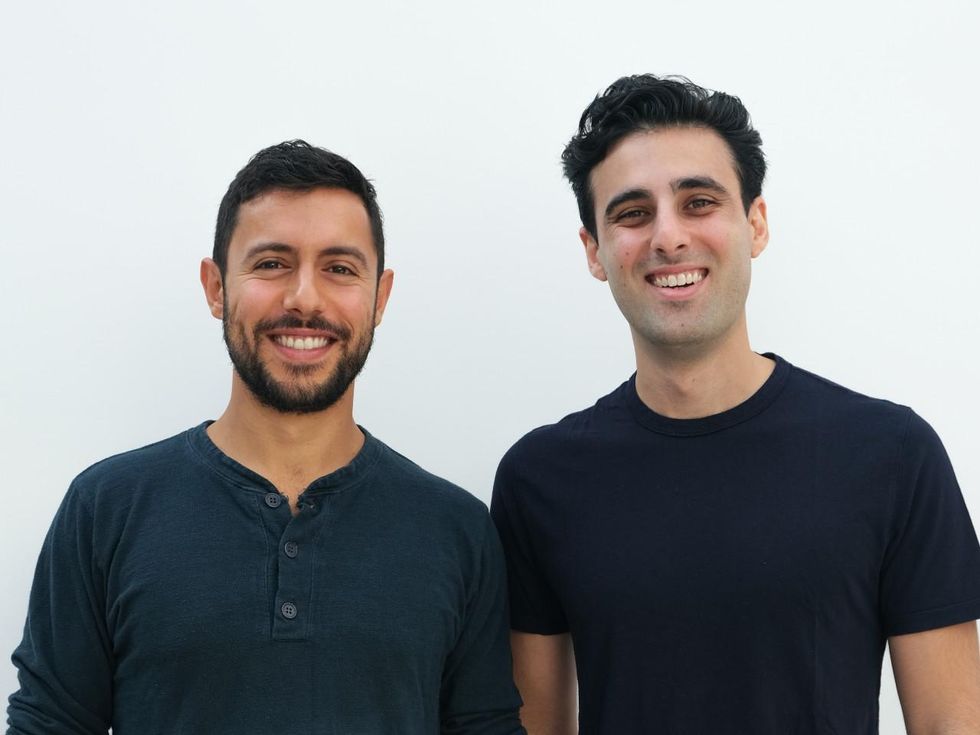Employee Benefits Company JOON Raises $2.3 Million in Seed Funding
Keerthi Vedantam is a bioscience reporter at dot.LA. She cut her teeth covering everything from cloud computing to 5G in San Francisco and Seattle. Before she covered tech, Keerthi reported on tribal lands and congressional policy in Washington, D.C. Connect with her on Twitter, Clubhouse (@keerthivedantam) or Signal at 408-470-0776.

Jon Shooshani and Sebastian Elghanian got a bird's eye view of how quickly the pandemic changed tech workers' priorities.
The founders of JOON, an employee benefits software platform that automates the reimbursement process for workers, said they almost immediately began to see shifts in how people were using their benefits.
Employees were quickly redirecting their gym membership benefits towards wearables and home workout equipment, and companies were expanding benefits for a home office and childcare — things they normally didn't pay for.
"It really tells the tale of the hybrid workforce that we are seeing now and we will be seeing in the future," said Elghanian, JOON's CEO, adding, "companies are providing more flexibility as to where their employees can work. And from that, different programs need to fit different needs."

The three-year-old company raised $2.3 million in seed led by L.A. venture capital firm Alpha Edison and contributions by a slew of angel investors, including Sweetgreen and Airtable executives.
Through JOON, employees can link their credit or debit cards to the platform, which automatically tracks employees' purchases. Employers can set a monthly allowance for verticals like family care, health and wellness and professional development, and the company leverages several data points, such as the name of the vendor, to pluck those dedicated purchases. The employer reimburses everyone at the end of the month.
"We're going to try to help you keep yourself accountable and we're going to take away the pain of paying," said Elghanian.
That kind of flexibility is likely to continue post-pandemic, as the workforce becomes more distributed and more people opt for working from home full-time. Different employees, based on geography and commute, will have different needs.
The pandemic kickstarted an overhaul of benefits programs. Some went unused as gyms shuttered and plane tickets were cancelled. A report by the International Foundation of Employee Benefit Plans found that more employers expanded mental health and childcare benefits and revised paid time off policies in the last year as COVID-19 forced people indoors. It found 48% of the multi-employee employers surveyed said they added tele-psychiatry services due to the pandemic.
JOON signed up around 60 companies and 10,000 of their employees since 2019, including meal service company Daily Harvest. It has also partnered with a slew of meal delivery brands, fitness apps, telehealth services and furniture companies to provide products at a discount to employees.
The two, best friends who grew up in Los Angeles, were inspired by challenges they faced managing employees and their benefits at a previous venture that fizzled out.
"It was a mess," said Shooshani, JOON's president, recalling how he and Elghanian struggled to provide their employees with perks that tech workers have come to expect.
The pair first tried to partner with a slew of gyms and other vendors, but the inflexible benefits went unused by many of their employees. After setting up a new program through Expensify, they found it created more administrative work for employees who wanted reimbursement.
"What we saw through our own experience was that barely any employees use it," Shooshani said. "So the engagement and utilization [was] super low."
The new funding will go towards expanding benefits categories to better accommodate employees' specific needs and tracking how well the program is working for employers, whether or not employees are actually using it.
The founders also have bigger plans to create personalized benefits options for employees by suggesting products such as meditation apps, wearables or meal kits they can use their allowance on.
"All of us want to work out, want to eat healthy, but there's things that get in the way," Shooshani said. "So we really believe in being a technology company that makes health and wellness more accessible, more affordable and nudging people in the direction of positive behavior."
Keerthi Vedantam is a bioscience reporter at dot.LA. She cut her teeth covering everything from cloud computing to 5G in San Francisco and Seattle. Before she covered tech, Keerthi reported on tribal lands and congressional policy in Washington, D.C. Connect with her on Twitter, Clubhouse (@keerthivedantam) or Signal at 408-470-0776.





 Image Source: Blackbird
Image Source: Blackbird